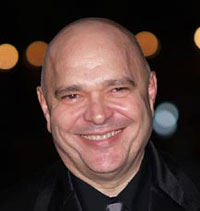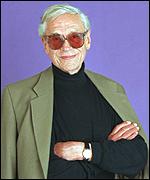 Britain’s tightly-knit theater and film community has had a tough few days, with the deaths of actor Paul Scofield and film director and screenwriter Anthony Minghella in the same week. Scofield, who had suffered from leukemia and was 86, represented the passing of an august and much-garlanded generation. Minghella’s departure left a legacy that was only unfulfilled in being too soon ended. Minghella was a popular and accomplished moviemaker, known for his literate and exacting scripts and glowing technique in movies like “Cold Mountain,” “The Talented Mr. Ripley” and “The English Patient,” the last of which won Best Picture in 1997.
Britain’s tightly-knit theater and film community has had a tough few days, with the deaths of actor Paul Scofield and film director and screenwriter Anthony Minghella in the same week. Scofield, who had suffered from leukemia and was 86, represented the passing of an august and much-garlanded generation. Minghella’s departure left a legacy that was only unfulfilled in being too soon ended. Minghella was a popular and accomplished moviemaker, known for his literate and exacting scripts and glowing technique in movies like “Cold Mountain,” “The Talented Mr. Ripley” and “The English Patient,” the last of which won Best Picture in 1997.
As a storyteller, Minghella seemed to be fascinated with love as an obsession. Each of his major characters exhibited a passion for a love left behind, or a passion unconsummated. And each of these obsessions was disrupted by death. The theme was never stronger, or more plainly stated than in his first feature, “Truly, Madly, Deeply,” a tale of a young widow whose grief for her self-absorbed musician husband is so deep it lures him back to the land of the living. She’s overjoyed, until he invites a few dead friends. Soon her apartment is infested with fog-breathing, loitering specters, who vie for her attention with a young man entirely unlike her husband.
The movie is sweeter than any of his major Hollywood works—some critics say too sweet for its own good. But it’s a powerful and often funny portrait of how the afterlife operates on the present life, and a great key to the rest of Minghella’s films. It also shows what kind of personal, idiosyncratic films he might have produced come back round to after making his reputation in L.A..


